Sizzurp
Cannabinoid THC Dominant
THC 18.67 - 20.99%
CBD 0.38 - 0.89%
Effect Euphoric
Side Effect Slurred speech
Flavor Lemon
Sizzurp Strain Information
THC
CBD
Potency
Sizzurp strain is another successful creation of breeders from Exotic Genetix. The team managed to create these buds by crossing Spirit in The Sky and Cookies and Cream strains. This strain is a hybrid and THC levels averaging 14%.
Main Flavors
As the team at Exotic Genetix says, the name of the strain is closely related to its flavor. The most exuding taste is grape-flavored cough syrup. You can also taste citrus notes and even sweet candy.
Sizzurp Cannabis Strain Reported Effects
The high starts in your head and behind the eyes, most likely you will feel the effects after the first toke. People say the Sativa side is also tangible due to its impact on the mind. But be careful, this strain is not beginner-friendly, and it is also preferable to consume the Sizzurp in the evening or at night. Among the most common effects are:
High THC levels make this cannabis an excellent remedy for people with the following diagnoses:
- Arthritis
- Insomnia
- Lack of appetite
- Hypertension
- Bipolar disorder
As negative side effects, users report drowsiness, fatigue, and slurred speech.
Growing Tips
Growing this plant on your own will be a feasible task for those who have at least a little experience in growing cannabis. The bushes can be cultivated both indoors and outdoors, and the flowering period is from 51 to 60 days. Moreover, Sizzurp weed strain will delight you with excellent yields when a sea of green setup is implemented.
Side Effects
Simply let us know how this strain tastes or write a detailed review.
Sizzurp Strain Cannabinoids
| THC | Tetrahydrocannabinol, or THC, is a major cannabis chemical compound. It is a psychoactive element that stimulates dopamine release and induces euphoria or happiness. THC-rich strains may be helpful with such conditions as lack of appetite, chronic pains , etc. It is considered to be the primary active marijuana component. | 18.67 - 20.99% |
| CBD | Cannabidiol, or CBD, is a major compound in cannabis, which is non-psychoactive. It is also proved to counteract the side effects of the second major component THC. CBD is widely used for medicinal purposes in rubs, oils and so on. It is helpful in muscle pain cases, may treat arthritis and migraines. Even Greeks used it against pain, while Queen Victoria applied it to get rid of menstrual cramps. | 0.38 - 0.89% |
| CBC | Cannabichromene, or CBC, is a minor cannabinoid, meaning that its quantity in cannabis is quite little. Though it has the same origin as CBD and THC, it is different in functions. Without any psychoactive effects, it is an efficient cannabis compound in combating acne and depression. CBC produces analgesic, antibacterial and anti-inflammatory effects. | 0.22 - 0.37% |
| CBG | Cannabigerol, or CBG, is one of the minor cannabis compounds in adult plants. On the other hand, young ones contain a lot of this antibacterial and anti-inflammatory component. During the growth, CBG is converted into different cannabinoids, mostly THC and CBD. The compound itself increases appetite and decreases eye pressure. | 0.13 - 0.88% |
| CBN | Cannabinol, or CBN, is a trace element in cannabis that is considered to be mildly psychoactive. It appears from oxidation THC, exposed to light and heat. CBN is mostly contained in old cannabis and in traditional hashish. It is effective against insomnia, bacterial infections and appetite loss. | 0.04 - 0.24% |
| THCV | Tetrahydrocannabivarin, or THC-V, is a compound contained in cannabis in trace amounts. Even though it is close to THC molecularly, it is different in effects. This compound may be psychoactive only in large amounts. THC-V reduces blood sugar, controls appetite, stimulates bone growth, etc. African Sativa strains are the richest in THC-V. | 0.15 - 0.46% |
Sizzurp Terpene Profile
| Pinene | Pinene is one of the most widespread terpenes in nature, found in pine trees, basil, nutmeg, parsley, and rosemary. Cannabis containing terpene (alpha-pinene or α-pinene) boasts a strong pine scent. Pinene is responsible for anti-inflammatory, pain-relieving, and anti-anxiety effects. | 0.09% |
| Myrcene | Myrcene (also known as β-myrcene) is one of the most common terpenes found in cannabis, representing more than 20% of the modern marijuana terpene profile. Myrcene has a distinct earthy, musky flavor, resembling cloves. It is responsible for calming and soothing effects of weed. Myrcene is also found in hops, thyme, mango, lemongrass, guava melon. | 0.17% |
| Ocimene | Ocimene (derived from the Ancient Greek word Ocimum meaning basil) is a terpene with sweet and herbaceous flavors, also boasting citrusy and woody undertones. Naturally, ocimene occurs in mint, parsley, orchids, hops, kumquats, mangoes, basil, bergamot, lavender, and pepper. Offers antifungal, anti-inflammatory, and antiviral properties. | 0.03% |
| Humulene | Humulene (also known as α-humulene) is one of the major terpenes found in cannabis, contributing to woody, earthy, spicy, herbaceous, and, mainly, floral aromas of cannabis. Used in modern medicine, humulene offers anti-inflammatory, antibacterial, and appetite suppressant effects, which have been well-researched by pharmaceutical companies. | 0.05% |
| Limonene | Limonene (also known as d-limonene) is the second most common terpene in nature and the third most common terpene in cannabis. It has a powerful citrus aroma and can be found in all citruses, including lemons, oranges, grapefruits, limes, juniper, etc. Limonene is known to elevate moods and provide anxiety, depression, and stress relief. | 0.11% |
| Linalool | Linalool (also known as beta linalool, linalyl alcohol, linaloyl oxide, and p-linalool) is one of the rarest terpenes found in cannabis, mostly in small quantities. Linalool is known for its spicy and lavender aroma, bringing relaxation and calming effects. It is also said to provide anti-inflammatory and analgesic properties that can be useful for athletes. | 0.04% |
| Sabinene | Sabinene is a terpene with a peppery, spicy, citrusy, and piney aroma, presented in Norway spruce, Holm oak trees, black pepper, cardamom, and carrot seeds. Found in cannabis in small quantities. Allegedly, sabinene has anti-inflammatory and antimicrobial properties. | 0.25% |
| Nerolidol | Nerolidol (also known as trans-nerolidol) is a terpene found in jasmine, tea tree, and lemongrass, as well as in some cannabis strains. Nerolidol has a distinguished floral aroma with notes of citrus, apples, and rose. The terpene has sedative, anti-anxiety, antimicrobial, anti-parasitic, anti-oxidant, and pain-relieving properties. | 0.08% |
| Terpinolene | Terpinolene is one of the most common terpenes found in cannabis; however, It's usually presented in small quantities. Is responsible for piney, floral, herbaceous, and even a little bit citrusy aroma of cannabis. Terpinolene can be found in lilacs, nutmeg, and cumin. In cannabis, terpinolene contributes to the sensation of "freshness." Has the potential to reduce the risk of heart diseases. | 0.06% |
| Caryophyllene | Caryophyllene (also known as beta or b caryophyllene) is a terpene found in many herbs and spices, such as black pepper, basil, rosemary, and oregano. Cannabis high in caryophyllene delivers a strong spicy, peppery aroma, resembling cinnamon and cloves. Caryophyllene offers potent anti-inflammatory and sedative effects. | 0.13% |
| Total terpenes content | 1.01% |
Growing Info
Similar Strains
THC 14.83 - 16.67%
CBD 0.52 - 0.66%
Effect Giggly
Flavor Lemon
THC 19.33 - 23.33%
CBD 0.41 - 0.64%
Effect Sleepy
Flavor Grape
THC 19.5 - 25%
CBD 0.05 - 0.92%
Effect Talkative
Flavor Flowery
THC 16 - 24%
CBD 14 - 24%
Effect Giggly
Flavor Sweet
THC 15.96 - 20.15%
CBD 0.2 - 0.62%
Effect Giggly
Flavor Sweet
THC 9.75 - 15.25%
CBD 0.01 - 0.23%
Effect Tingly
Flavor Pear
THC 12 - 16%
CBD 0.79 - 0.91%
Effect Relaxed
Flavor Woody
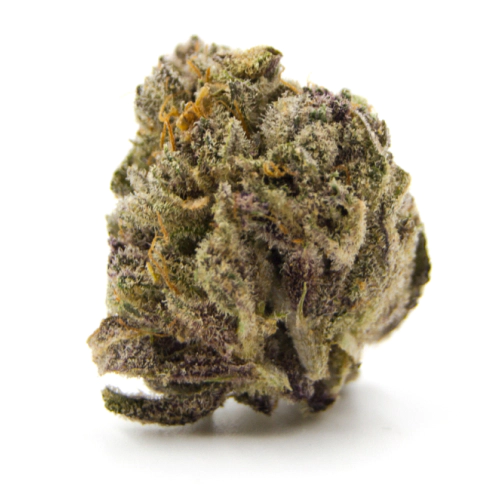
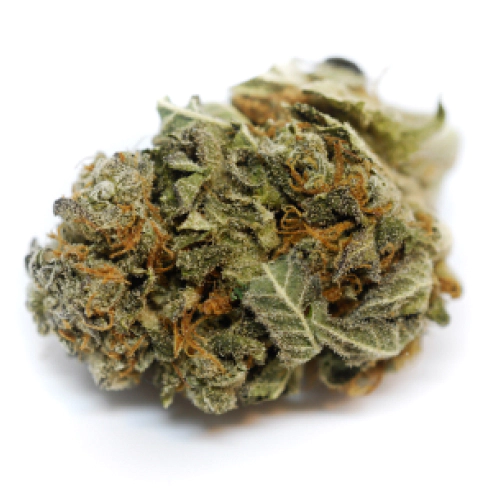
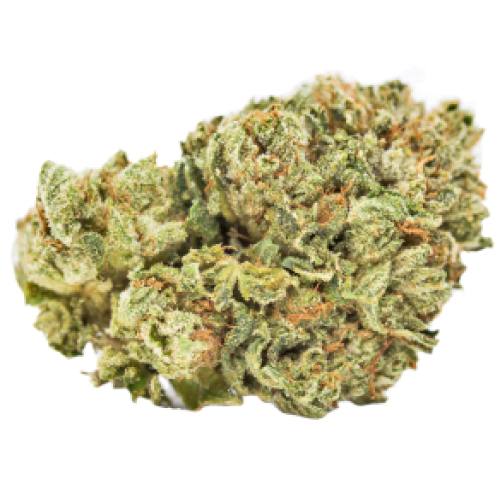
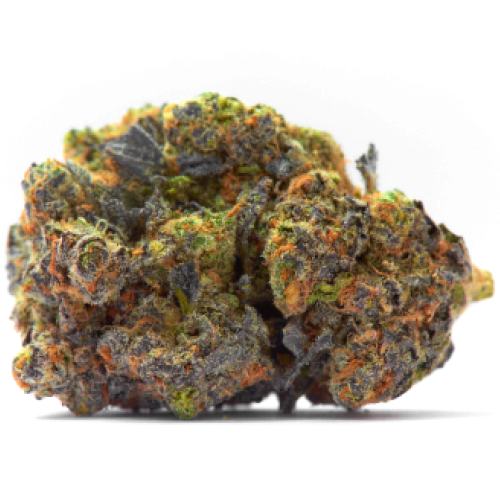
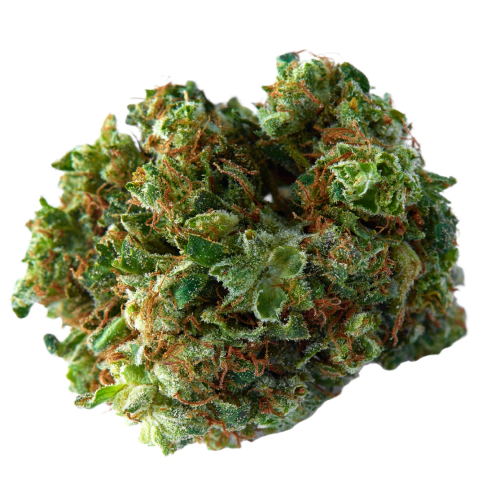
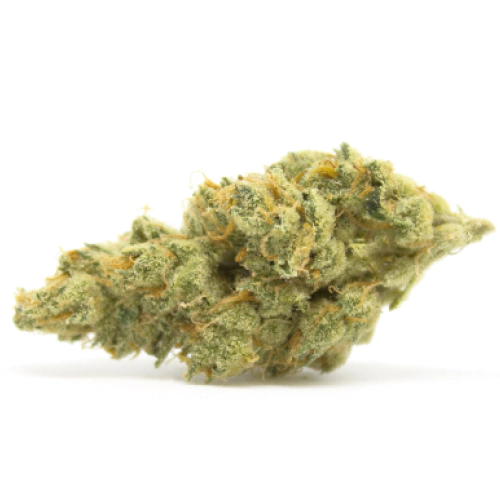
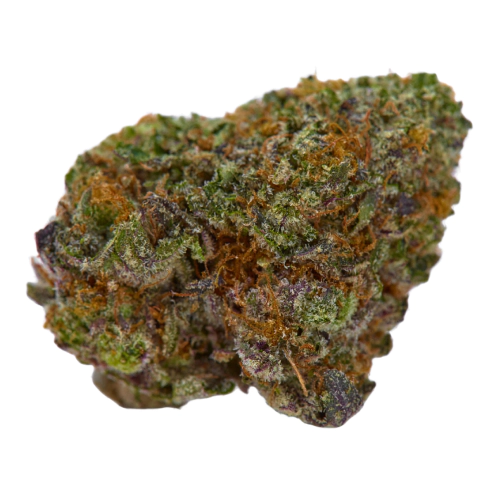
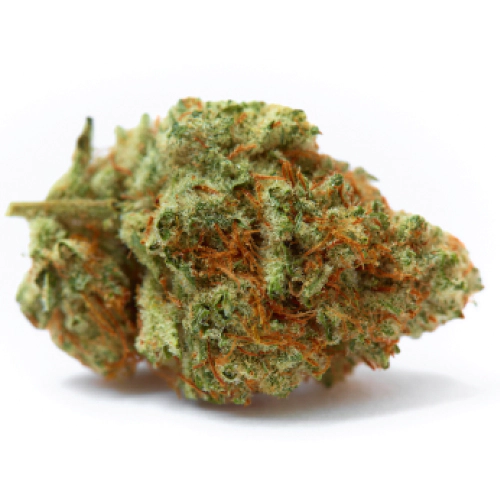
Be the first and share your opinion
Write a Review